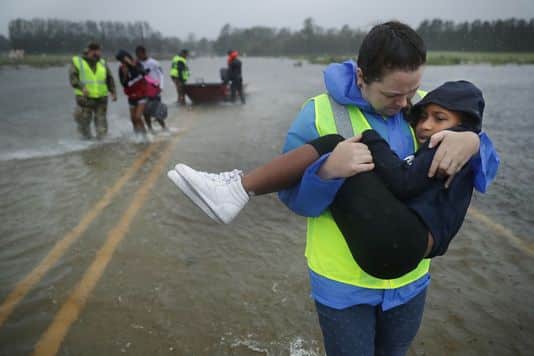Hurricane season is upon us, and will be through November. If you’re interested in seeking ways to aid impacted areas, donors are encouraged to review the following disaster relief giving tips.
Be cautious when giving online.
Be cautious about online giving, especially in response to spam messages and emails that claim to link to a relief organization. Never share personal information with unverified sources. This includes your email username and password that many “must-watch” hurricane Harvey videos demand you provide before watching. Similarly, do not click on any links or download anything from suspicious sources. Finally, it’s best not to donate over the phone because it’s difficult to verify a charity’s authenticity that way. If you want to give to a charity involved in relief efforts, go directly to the charity’s website.
Rely on expert opinion when it comes to evaluating a charity.
If you’d like to donate to a specific charity, first determine its validity. Check out the charity on the Better Business Bureau’s Wise Giving Alliance give.org, Charity Navigator or Charity Watch. Be sure the charity’s name matches the listed charity exactly.
Understand crowdfunding.
Keep in mind that some crowdfunding sites such as Kickstarter or GoFundMe do very little vetting of individuals who decide to post for assistance after a disaster, and it is often difficult for donors to verify the trustworthiness of crowdfunding requests for support. If you decide to contribute via crowdfunding, it is probably best to give to people who you personally know that have posted requests for assistance.
Be wary of claims that 100% of donations will assist relief victims.
Despite what an organization might claim, charities have fundraising and administrative costs. Even a credit card donation will involve, at a minimum, a processing fee. If a charity claims 100% of collected funds will be assisting hurricane victims, the truth is that the organization is still probably incurring fundraising and administrative expenses. It may use some of its other funds to pay these costs, but the expenses will still be incurred.
Find out if the charity is providing direct aid or raising money for other groups.
Some charities may be raising money to pass along to relief organizations. If so, you may want to consider “avoiding the middleman” and give directly to those that have a presence in the region. Or, at a minimum, check out the ultimate recipients of these donations to see whether they are equipped to provide aid effectively.
Gifts of clothing, food or other in-kind donations.
In-kind drives for food and clothing, while well-intentioned, may not necessarily be the quickest way to help those in need – unless the organization has the staff and infrastructure to distribute such aid properly. Ask the charity about its transportation and distribution plans. Be wary of those who are not experienced in disaster relief assistance.
Reach out on your own.
The best way to ensure your money is really going toward intended beneficiaries is to contact the charities yourself.
- American Red Cross – for blood or monetary donation information, contact 1.800.RED.CROSS (1.800.733.2767)
- United Way of Central Georgia – UWCG 2-1-1- Contact Center connects people to the assistance they need to address every day challenges of living as well as those that develop during times of community emergencies.
Be on the lookout for scams and verify every charity you help out. This way, you can give with a full heart and confidence that it will benefit the right people.
Article provided in part by the Better Business Bureau (BBB).
